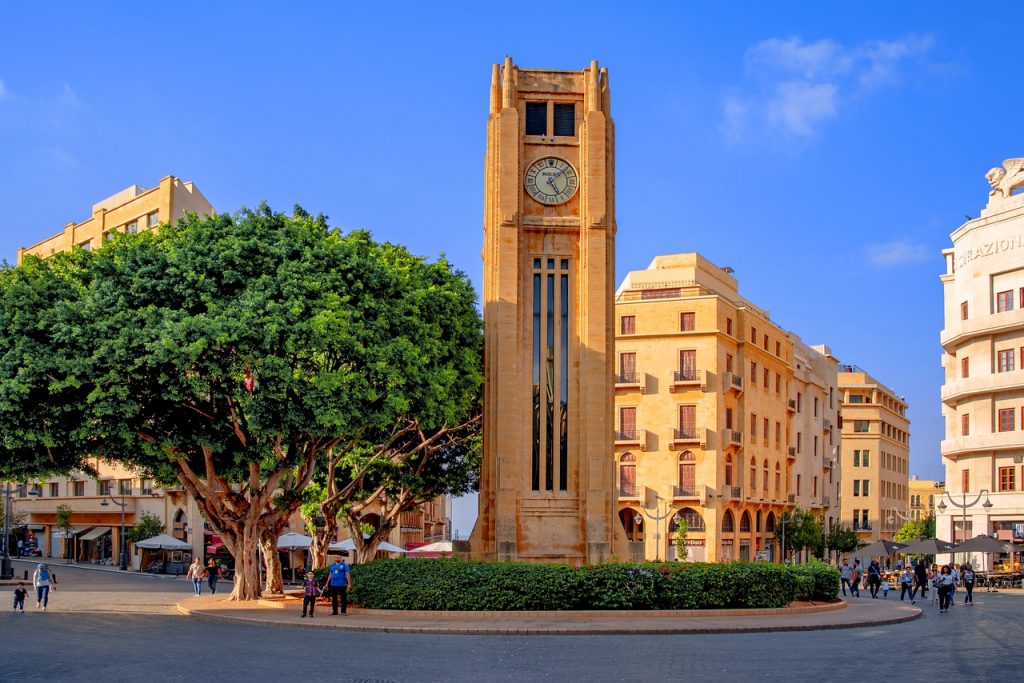 Executive Magazine, in partnership with the United States Agency for International Development (USAID) under the Lebanon Enterprise Development (LED) project, analyzed five productive Lebanese industries with the help of over 50 leading financial, business, and policymaking stakeholders. The objective of the project was to revitalize the job market and to develop economic growth. The analysis was presented in a report dubbed: “Economic Framework for the Creation of Sustainable Private Sector Employment in Lebanon.”
Executive Magazine, in partnership with the United States Agency for International Development (USAID) under the Lebanon Enterprise Development (LED) project, analyzed five productive Lebanese industries with the help of over 50 leading financial, business, and policymaking stakeholders. The objective of the project was to revitalize the job market and to develop economic growth. The analysis was presented in a report dubbed: “Economic Framework for the Creation of Sustainable Private Sector Employment in Lebanon.”
Five roundtables took place focusing on manufacturing, food processing and agro-industrial production; media, publishing, and content creation; food & beverage and hospitality; and technology and knowledge enterprises.
The roundtable discussions triggered constructive thinking from the private sector and advocacy groups for sustainable job creation and productivity. They helped identify alternative solutions for progress to be made throughout the Lebanese industrial and business communities.
According to the report, it is crucial for manufacturers to overcome the rising financial barriers by leveraging competitive skills and new labor cost advantages. The Lebanese manufactured products have a future but better access to financing is crucial for continued growth and development. When it comes to manufacturers, brands, and synergies matter, but manufacturers place top value on another brick in the industrial ecosystem.
On another level, the report said that helping the agro-food sector can contribute to building a productive economic system. The loss of imports benefited the agro-food sector locally but going global is a necessity that requires better understanding of tastes and standards. A lot of work needs to be done with compliance standards and making new products. Modernizing the food safety system in Lebanon is essential for improving both domestic and export market access. The private sector needs to lead new initiatives but without waiting for governmental action. When it comes to locally produced drinks, export potential is overhyped and restricted by the smallness of the supply that producers can bring to export markets.
When it comes to the media sector, the roundtable detailed processes to take media creativity, integrity, and professionalism to new heights of regional prominence. The media sector knows how to ride the current to its advantage, but it needs to plot its course carefully and watch out for pirates. The public sector remains very largely absent from the discussion, amidst calls for more collaboration within the industry. By articulating their priorities, Lebanon’s darling media can mobilize huge support from their many friends abroad.
As for F&B and hospitality, the aim is to export successful F&B concepts and develop job-creating quality hospitality ventures. As pandemic restrictions ease out, hopes rest on tourism amid larger economic uncertainties. It takes a drastic approach and steps to revive an industry relying on physical and social contact. The tourism sector is struggling mostly in terms of safety in Lebanon due to political unrest, while travel restrictions due to the pandemic came in as the cherry on top of the downfall. Pushing forward and outward remains key, while focusing on resilience and initiatives to protect social security.
When it comes to tech and knowledge enterprises, enhancing core strengths and specializations in the digitized knowledge economy landscape is essential. Hanging on to Lebanon’s professionals in the technology and knowledge enterprise industry should be the number one priority. The need to access new markets requires talents, which are leaving due to a brain drain. Industry stakeholders must build on success stories and then approach the Lebanese diaspora and Lebanese community with a model that creates jobs in the Lebanese market. The industry should bet on a multitasking, multidisciplinary workforce to increase competitiveness of quality services. Today, the sector is competitive on the cost side, but not necessarily on the availability of resources. Outsourcing is maturing into well-regulated and strategic digital outsourcing, a globalized application of division of labor for improvement of productivity. The social enterprise angle of the Lebanese Outsourcing Initiative could contribute to attracting currently untapped investments from the growing global pool of impact investment funds. The past year’s indications of the increased job engagement with the diaspora and remote work angles cannot be expected to last.
















